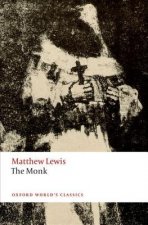
Kód: 04231907
Buchenwald Child
Autor Bill Niven
For its leaders, the German Democratic Republic was founded on the legacy of communist resistance to Nazism. They laid particular emphasis on events at Buchenwald, where communist-led prisoners allegedly threw off the fascist yoke ... celý popis
- Jazyk:
 Angličtina
Angličtina - Väzba: Brožovaná
- Počet strán: 258
Nakladateľ: BOYDELL & BREWER INC, 2009
- Viac informácií o knihe

Mohlo by sa vám tiež páčiť
-

Nahý mezi vlky
0 € -100 %
Darčekový poukaz: Radosť zaručená
- Darujte poukaz v ľubovoľnej hodnote, a my sa postaráme o zvyšok.
- Poukaz sa vzťahuje na všetky produkty v našej ponuke.
- Elektronický poukaz si vytlačíte z e-mailu a môžete ho ihneď darovať.
- Platnosť poukazu je 12 mesiacov od dátumu vystavenia.
Viac informácií o knihe Buchenwald Child
Nákupom získate 104 bodov
 Anotácia knihy
Anotácia knihy
For its leaders, the German Democratic Republic was founded on the legacy of communist resistance to Nazism. They laid particular emphasis on events at Buchenwald, where communist-led prisoners allegedly threw off the fascist yoke in a heroic act of self-liberation (although in reality they were liberated by the American army). A key strand in the Buchenwald narrative was the tale of the rescue by communist prisoners of a three-year-old Jewish prisoner, Stefan Jerzy Zweig. His story became a powerful focus for the country's celebration of its antifascist past. Bruno Apitz's novel Naked among Wolves, which describes Zweig's rescue, was published in 1958 and became an immediate bestseller. It was later adapted into a highly successful cinema film, and became a staple of the school curriculum. In 1963, a campaign to find Zweig -- by this time a grown man -- met with success when he was located in Lyon and offered the chance to study in the GDR. Bill Niven sets out to establish what really happened to Zweig in Buchenwald. Why was he protected by adult prisoners, and at what price? (There is evidence that a Sinto boy was sent to Auschwitz in Zweig's place, perhaps as a result of the influence of communist prisoners, evidence that was suppressed in the GDR.) Niven explores how Zweig's story was presented in East Germany and examines what that reveals about the country's understanding -- and use of -- the Nazi past and the Holocaust. He then examines the postunification reception of Zweig's story: in a unified Germany dominated by west Germans, the GDR's deployment of the story has come in for heavy criticism -- which in turn serves the politicized end of condemning East Germany's approach to the Nazi past. Bill Niven is Professor of Contemporary German History at the Nottingham Trent University, UK.
 Parametre knihy
Parametre knihy
Zaradenie knihy Knihy po anglicky Humanities History History: specific events & topics
42.19 €
- Celý názov: Buchenwald Child
- Autor: Bill Niven
- Jazyk:
 Angličtina
Angličtina - Väzba: Brožovaná
- Počet strán: 258
- EAN: 9781571134042
- ISBN: 1571134042
- ID: 04231907
- Nakladateľ: BOYDELL & BREWER INC
- Hmotnosť: 372 g
- Rozmery: 230 × 157 × 19 mm
- Dátum vydania: 01. June 2009
Obľúbené z iného súdka
-

Man's Search for Meaning
7.26 € -5 % -

Scouting for Boys
10.85 € -20 % -

White Gold
14.43 € -23 % -

Discourse on Colonialism
12.38 € -15 % -

1960s Scrapbook
18.32 € -15 % -

Story of Esci
18.94 € -20 % -

Complicity in the Holocaust
30 € -4 % -

Women, Race & Class
10.03 € -23 % -

The Rape of Nanking
15.97 € -23 % -

The Complete MAUS
18.73 € -14 % -

Man's Search For Meaning
16.58 € -23 % -

Holocaust Industry
12.38 € -15 % -

Ordinary Men
10.95 € -24 % -

Homo Deus
12.79 € -24 % -

Bloodlands
12.90 € -24 % -

Conquerors
14.43 € -23 % -

Brief History of Japan
14.02 € -19 % -

Secret Lives of Colour
15.05 € -24 % -

Ascent of Money
17.91 € -14 % -

If This Is A Man/The Truce
14.43 € -23 % -

Delirious New York
30 € -17 % -

Eichmann in Jerusalem
11.05 € -23 % -

Mein Kampf - The Ford Translation
41.99 € -

Diary of a Young Girl
9.62 € -

Twelve Years a Slave
3.57 € -24 % -

Diary of a Young Girl
10.23 € -24 % -

More Money Than God
18.63 € -17 % -

Women's Work
20.07 € -20 % -

Eichmann in Jerusalem
15.35 € -21 % -

Mein Kampf
31.84 € -

Square and the Tower
15.05 € -24 % -

My Mad Fat Diary
12.28 € -23 % -

Monk
9.41 € -28 % -

Empires of the Sea
14.43 € -23 % -

Origins of Museums
58.99 € -17 % -

Golden Atlas
27.44 € -23 % -

Access to History for the IB Diploma Rights and protest Study and Revision Guide
37.79 € -

Kafka Was the Rage
16.07 € -8 % -

Better Angels of Our Nature
20.89 € -23 % -

Good Night Stories for Rebel Girls: 50 Postcards
15.66 € -5 % -

Night
11.15 € -23 % -

Victorian House
18.73 € -23 % -

This Way for the Gas, Ladies and Gentlemen
13.82 € -21 % -

Bitten By Witch Fever
38.50 € -9 % -

Influence of Sea Power Upon History, 1660-1783
25.29 € -19 % -

What Jane Austen Ate and Charles Dickens Knew
20.07 € -5 % -

Hot Wheels Recent Years
31.23 € -

Scouting for Boys
21.19 € -19 % -

Titanic and Other Ships
14.64 €
Osobný odber Bratislava a 2642 dalších
Copyright ©2008-24 najlacnejsie-knihy.sk Všetky práva vyhradenéSúkromieCookies



 21 miliónov titulov
21 miliónov titulov Vrátenie do mesiaca
Vrátenie do mesiaca 02/210 210 99 (8-15.30h)
02/210 210 99 (8-15.30h)